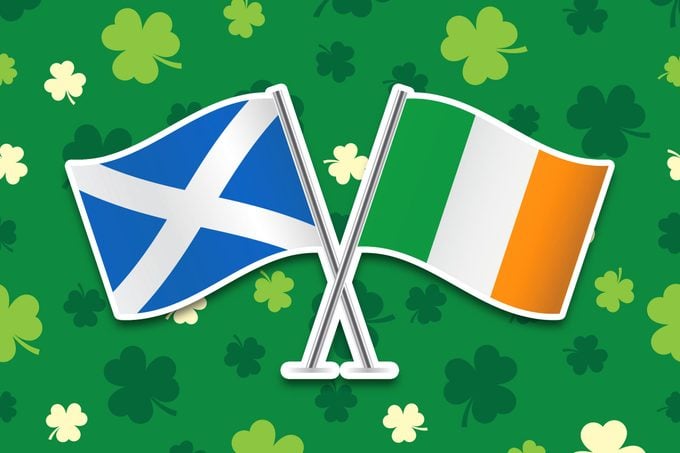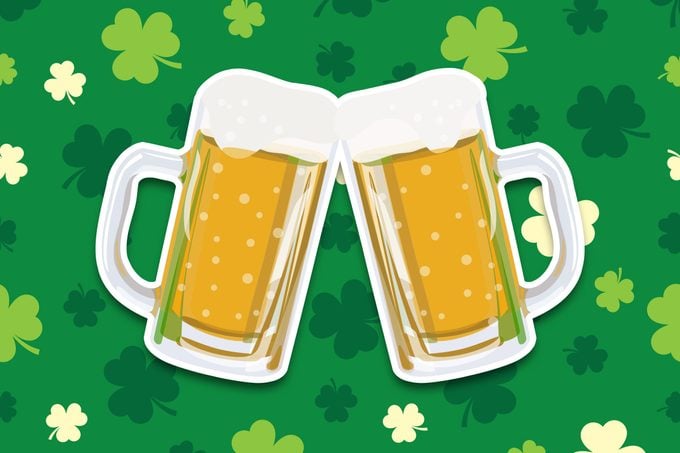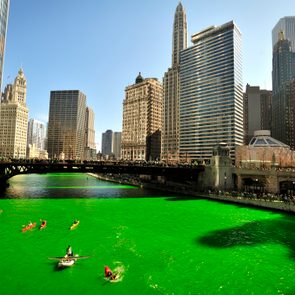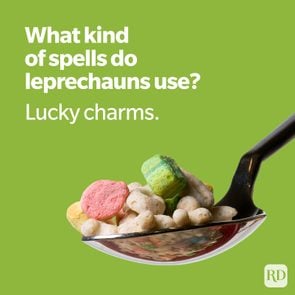What Does the Irish Word “Sláinte” Mean?
Updated: Mar. 31, 2024

Does "sláinte" really mean "cheers"? Here's the true "sláinte" meaning and pronunciation.
For those who aren’t Irish, the term “sláinte” might be unfamiliar. After all, it is written in another language. But if you’ve spent any time in a pub enjoying a pint of Guinness with friends, you’ve probably heard it. And you’ve no doubt assumed it means “Cheers!” That’s not the exact translation, though the word has blessed many glasses in Ireland and beyond.
The Emerald Isle looms large every year on March 17, inspiring us to indulge in St. Patrick’s Day traditions like whipping up our favorite Irish recipes and washing them down with a swig of beer. After a lubricating pint or two, you may be inspired to offer some lyrical Irish quotes or the commonly uttered “Erin go Bragh” (essentially “Ireland forever”).
To best channel your inner Irish, learn the “sláinte” meaning and the correct “sláinte” pronunciation. That just may help convince the crowd of your Irish street cred, regardless of your heritage.
Get Reader’s Digest’s Read Up newsletter for more holiday tips, humor, cleaning, travel, tech and fun facts all week long.
What does “sláinte” mean?
You’ll hear this word in Ireland and Scotland, and the sláinte meaning is “health” in both countries. When someone says “sláinte,” on St. Patrick’s Day or any other day, they’re essentially wishing you health. So who needs a four-leaf clover when you’ve been blessed with “sláinte”? However, saying “sláinte” is also a way of saying “cheers” in Irish.
Is “sláinte” Irish or Scottish?

It’s both! Ireland and Scotland have distinct languages, with a shared heritage and some crossover. Both fall under the Celtic umbrella. Gaelic is the language of Scotland and was imported from Ireland in the fifth and sixth centuries. Irish, another Celtic language, is spoken in Ireland. Outside of Scotland, the language for each country is sometimes distinguished as Irish Gaelic and Scots Gaelic. For drinking purposes, wishing someone “sláinte” works just as well in Scotland, with a different pronunciation.
English is the more prevalent language of Ireland, but Irish has history on its side. Unfortunately, Irish usage has been declining for centuries. A 2016 census found that only 73,000 people (about 4% of the population) spoke Irish in pockets around Ireland on a daily basis, although closer to 2 million (almost 40% of the population) are able to use it. Signs appear in both languages, and words like “sláinte” are ubiquitous.
How do you pronounce “sláinte”?
The proper way to say it is “slawn-cha.” Notice the “t” is absent.
How do you respond to “sláinte”?

When someone says “sláinte” to you, repeating the phrase works well. But if they raise their glass with “sláinte mhaith,” or good health, wish them “sláinte agad-sa” or “sláinte chugat.” That’s the Irish way to say, in essence, “good health back at you.”
How do you say “Happy St. Patrick’s Day” in Irish?
If you want to wear green on St. Patrick’s Day and dive into other traditions (like watching an Irish movie, or sharing a St. Patrick’s Day meme or two), learning a few Irish sayings might be useful. Luckily, the language is rich with options, including other ways to say “Happy St. Patrick’s Day” in Irish.
- “Lá Fhéile Pádraig sona duit”: To wish someone a Happy St. Paddy‘s Day. If it’s a crowd, substitute duit with daoibh.
- “Dhá Guinness, le do thoil”: To ask for “two Guinness, please.”
- “Is fearr an tsláinte ná na táinte”: To expand the “sláinte” toast with “health is better than wealth.”
- “Go n-eirí an t-ádh leat”: This wishes good luck but translates to “that luck may rise with you.”
- “Póg”: Defined as “kiss,” this might be a useful word if you’re looking for a smooch on the cheek on St. Patrick’s Day. (There’s a phrase that includes póg and another part of the anatomy, if you’re not.)
Sources:
- Tourism Ireland: “Languages of Ireland”
- Central Statistics Office of Ireland: “Census of Population 2016 – Profile 10 Education, Skills and the Irish Language”
- Irish Whiskey LAD: “How to Pronounce Sláinte – the Irish way!”























